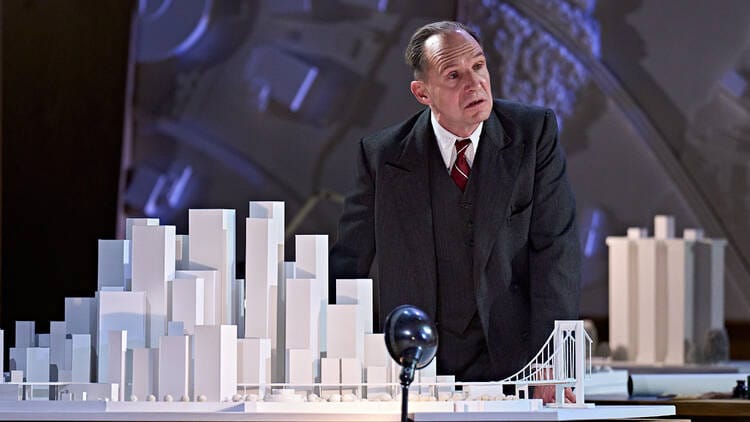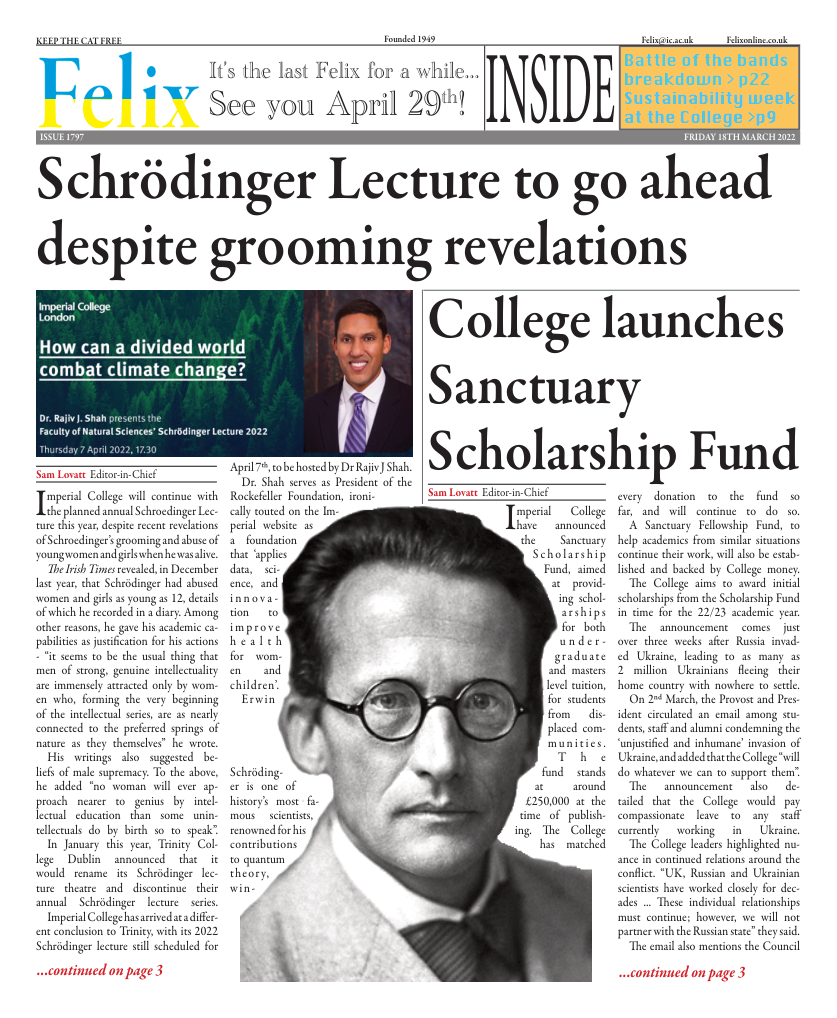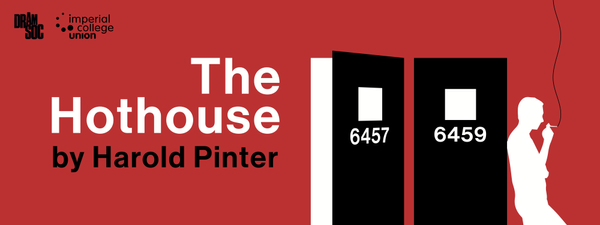Straight Line Crazy Review
Robert Moses supposes he proposes the best urban planning, but Robert Moses supposes erroneously.

Straight Line Crazy
★★★
- What: Drama
- Where: The Bridge Theatre
- When: Until June 18th
- Cost: From £7.50
There is something antiquated about David Hare’s new play Straight Line Crazy at the Bridge Theatre. Ralph Fiennes plays Robert Moses, the real-life urban planner whose infrastructure projects dragged New York kicking and screaming into modernity with parks, tunnels, and highways, and is (say it with me) straight line crazy (because he built his roads in straight lines). On paper, this seems interesting, and it is. Only that it is more interesting than entertaining with a predictable structure and formulaic approach to storytelling.
Ralph Fiennes is brash and boisterous as Moses. Under Nicholas Hytner’s simple but precise direction he is undeniably intoxicating to watch, although his American accent is sometimes questionable. The supporting cast stand their ground beside him; Siobhán Cullen as Finnuala Connell, Moses’s long time assistant, is grounded and candid in her portrayal of a woman infatuated by Moses’s philosophy and sense of civic duty. In the first act she, alongside Samuel Barnett’s equally strong Ariel Porter, clashes with Moses who plans to build roads on the privately owned Long Island, granting the growing urban population of New York access to the recreation areas. But this conflict is inorganic, carefully designed to allow Fiennes as Moses to divulge his utilitarian, and sometimes Machiavellian, world view. Interesting to hear, not as entertaining to watch.
The second act skips forward thirty years where his world view has deteriorated into the delusional pipe dreams of a cantankerous old man blinded by corporate greed, losing sight of the communities who he supposedly serves. His plan to build a highway through Washington Square is met with resistance by local activists. Support for their cause germinates and sympathy for Moses wilts. The seeds of the inevitable hubristic downfall at the end of the second act are sown early on. But because his downfall is so predictable, the emotional force of it is nullified.
Hare toys with the nature of duty and democracy, but this never sinks deeper than one of Moses’s witticism laden rants. There is a question about the effectiveness of the “strong man” to rise above the bureaucratic governmental administration. But Hare merely contemplates the idea rather than firmly exploring it. The moral ambiguity of Moses’s decisions is also unexplored. The real-life Moses was accused of racism, moving communities out of deprived areas to make way for transport links. Again, this is only briefly touched on as part of his undoing.
Straight Line Crazy brings nothing new to the theatrical table. Yes, it is interesting to learn about biographical details of Robert Moses and urban planning, but Robert Caro’s 1974 biography of Robert Moses The Power Broker does this far better. Probably written knowing that Nicholas Hytner would direct and Ralph Fiennes would star, David Hare’s 39th play risks complacency in a time when theatre is in need of dynamism.







